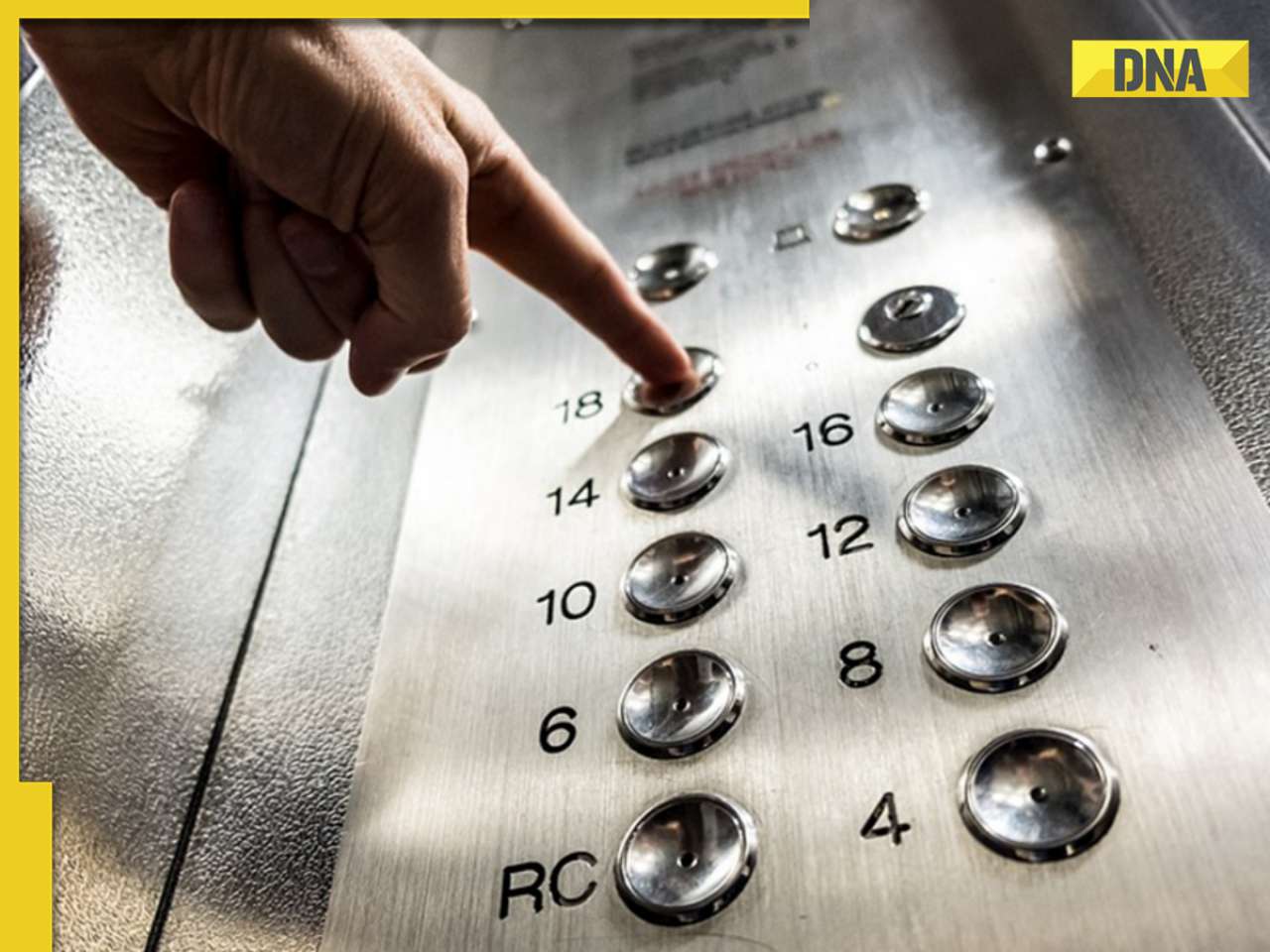See here the list of top five space missions to take place this year.
The year 2023 is here and the whole world is preparing to achieve new milestones and set higher records. Similarly, the science world is ready to set new and higher benchmarks for the world. Here is a list of crucial space missions in 2023 to look forward to.
Gaganyaan mission
Indian Space Research Organisation (ISRO) will start the series of test flights from February 2023. The space agency is also planning to use a heavy-light Chinook helicopter and the C-17 Globemaster transport aircraft for testing the mission’s crew module. The module is designed to carry astronauts into orbit for three dates as part of the Gaganyaan mission.
The purpose of the crew module is to provide oxygen, remove carbon dioxide, remove humidity and maintain a living temperature as it transports the three astronauts on board. Four candidates have already been chosen by the space agency and they have already received their initial training in Russia. Now, they are undergoing further training at the Astronaut Training Facility in Bengaluru.
Chandrayaan-3
ISRO's Chandrayaan 3 is a follow-up to the Chandrayaan-2 mission. The Chandrayaan-2 failed to achieve a soft landing on the Moon. The Chandrayaan-3 will also carry a lunar lander and a lunar rover to Earth’s lone natural satellite. The mission is scheduled to launch aboard a Launch Vehicle 3 (LVM3) rocket, earlier known as the GSLV 3, in June 2023.
Juice mission
The European Space Agency (ESA) is planning to launch the Jupiter Icy Moons Explorer mission in April 2023. The Juice mission aims to complete 35 fly-bys near Jupiter and will make detailed observations about the gas giant and its three large ocean-bearing moons–Europa, Ganymede and Callisto. Along with observing Jupiter's environment in-depth, the Juice mission will also characterise its moons as both planetary objects and potential habitats.
After it completes its 35 fly-bys near Jupiter and its Moons, it will also become the first spacecraft to shift its own orbit to another world by moving to Ganymede’s orbit. Among the three moons, Ganymede is the largest moon in the Solar System and it is even larger than planets-- Pluto and Mercury. It is also the only moon to have its own intrinsic magnetic field. Mercury and Earth are the only other solid bodies that generate a dipole field like Ganymede.
OSIRIS-Rex mission
Launched in September 2016, the OSIRIS-REx mission is carrying samples of the asteroid Bennu. It is currently on the way to return them to Earth in September 2023. Once the spacecraft reaches at around 250 kilometres above the Earth's surface, it will release a sample capsule that will make a precise landing at the United States Air Force’s Utah Test and Training range.
NASA believes that asteroids like Bennu can act as time capsules for the earliest history of our solar system. They preserve chemical signatures from when the universe was a younger place and might even contain samples of the ancient building blocks of life. The space agency will distribute portions of the samples to scientists around the world but a large fraction of it will be preserved so that it can be studied by future generations with much more advanced technology.
Visiting Asteroid Psyche
NASA is planning to launch the Psyche mission to study the metallic asteroid 16 Psyche after the OSIRIS-REx’s return. 16 Psyche revolves around the sun in an orbit between Mars and Jupiter. This asteroid appears to be the exposed nickel-iron core of an early planet.
Instruments aboard the Psyche spacecraft will include a Multispectral Imager, a Gamma Ray and Neutron Spectrometer, a Magnetometer and an X-band Gravity Science Investigation. The mission will also test a new laser communication technology that uses light at near-infrared wavelengths instead of radio waves to communicate with the Earth.
Bonus: Newly-developed rockets
In addition to the many science missions, various private space companies will also conduct the maiden flights of their new rockets, including, Arianespace’s Ariane 6, Jeff Bezos-owned Blue Origin’s New Glenn, Elon Musk-owned SpaceX’s Starship and the United Launch Alliance’s Vulcan Centaur.
![submenu-img]() Ramesh Awasthi: Kanpur's 'Karma Yogi' - Know inspirational journey of 'common man' devoted for society
Ramesh Awasthi: Kanpur's 'Karma Yogi' - Know inspirational journey of 'common man' devoted for society![submenu-img]() Tovino Thomas accused of stopping his film Vazhakku's release by director Sanal Kumar Sasidharan: 'The agenda of...'
Tovino Thomas accused of stopping his film Vazhakku's release by director Sanal Kumar Sasidharan: 'The agenda of...'![submenu-img]() PM Modi wears turban, serves langar at Gurudwara Patna Sahib in Bihar, watch
PM Modi wears turban, serves langar at Gurudwara Patna Sahib in Bihar, watch![submenu-img]() Anil Ambani’s debt-ridden Reliance’s ‘buyer’ now waits for RBI nod, wants Rs 80000000000…
Anil Ambani’s debt-ridden Reliance’s ‘buyer’ now waits for RBI nod, wants Rs 80000000000…![submenu-img]() Man in bizarre jeans dances to Tinku Jiya in crowded metro, viral video makes internet furious
Man in bizarre jeans dances to Tinku Jiya in crowded metro, viral video makes internet furious![submenu-img]() Maharashtra Board HSC, SSC Results 2024: MSBSHSE class 10, 12 results soon at mahresult.nic.in, latest update here
Maharashtra Board HSC, SSC Results 2024: MSBSHSE class 10, 12 results soon at mahresult.nic.in, latest update here![submenu-img]() Meet IIT-JEE topper who passed JEE Advanced with AIR 1, decided to drop out of IIT due to…
Meet IIT-JEE topper who passed JEE Advanced with AIR 1, decided to drop out of IIT due to…![submenu-img]() Meet IPS Idashisha Nongrang, who became Meghalaya's first woman DGP
Meet IPS Idashisha Nongrang, who became Meghalaya's first woman DGP![submenu-img]() CBSE Results 2024: CBSE Class 10, 12 results date awaited, check latest update here
CBSE Results 2024: CBSE Class 10, 12 results date awaited, check latest update here![submenu-img]() Meet man, who was denied admission in IIT due to blindness, inspiration behind Rajkummar Rao’s film, now owns...
Meet man, who was denied admission in IIT due to blindness, inspiration behind Rajkummar Rao’s film, now owns...![submenu-img]() DNA Verified: Is CAA an anti-Muslim law? Centre terms news report as 'misleading'
DNA Verified: Is CAA an anti-Muslim law? Centre terms news report as 'misleading'![submenu-img]() DNA Verified: Lok Sabha Elections 2024 to be held on April 19? Know truth behind viral message
DNA Verified: Lok Sabha Elections 2024 to be held on April 19? Know truth behind viral message![submenu-img]() DNA Verified: Modi govt giving students free laptops under 'One Student One Laptop' scheme? Know truth here
DNA Verified: Modi govt giving students free laptops under 'One Student One Laptop' scheme? Know truth here![submenu-img]() DNA Verified: Shah Rukh Khan denies reports of his role in release of India's naval officers from Qatar
DNA Verified: Shah Rukh Khan denies reports of his role in release of India's naval officers from Qatar![submenu-img]() DNA Verified: Is govt providing Rs 1.6 lakh benefit to girls under PM Ladli Laxmi Yojana? Know truth
DNA Verified: Is govt providing Rs 1.6 lakh benefit to girls under PM Ladli Laxmi Yojana? Know truth![submenu-img]() Remember Harsh Lunia? Just Mohabbat child star, here's how former actor looks now, his wife is Bollywood's popular...
Remember Harsh Lunia? Just Mohabbat child star, here's how former actor looks now, his wife is Bollywood's popular...![submenu-img]() Mother's Day 2024: Bollywood supermoms who balance motherhood, acting, and run multi-crore businesses
Mother's Day 2024: Bollywood supermoms who balance motherhood, acting, and run multi-crore businesses![submenu-img]() Rocky Aur Rani's Golu aka Anjali Anand shocks fans with drastic weight loss without gym, says fitness secret is...
Rocky Aur Rani's Golu aka Anjali Anand shocks fans with drastic weight loss without gym, says fitness secret is...![submenu-img]() In pics: Ram Charan gets mobbed by fans during his visit to Pithapuram for ‘indirect campaign’ for uncle Pawan Kalyan
In pics: Ram Charan gets mobbed by fans during his visit to Pithapuram for ‘indirect campaign’ for uncle Pawan Kalyan![submenu-img]() Streaming This Week: Yodha, Aavesham, Murder In Mahim, Undekhi season 3, latest OTT releases to binge-watch
Streaming This Week: Yodha, Aavesham, Murder In Mahim, Undekhi season 3, latest OTT releases to binge-watch![submenu-img]() Haryana Political Crisis: Will 3 independent MLAs support withdrawal impact the present Nayab Saini led-BJP government?
Haryana Political Crisis: Will 3 independent MLAs support withdrawal impact the present Nayab Saini led-BJP government?![submenu-img]() DNA Explainer: Why Harvey Weinstein's rape conviction was overturned, will beleaguered Hollywood mogul get out of jail?
DNA Explainer: Why Harvey Weinstein's rape conviction was overturned, will beleaguered Hollywood mogul get out of jail?![submenu-img]() What is inheritance tax?
What is inheritance tax?![submenu-img]() DNA Explainer: What is cloud seeding which is blamed for wreaking havoc in Dubai?
DNA Explainer: What is cloud seeding which is blamed for wreaking havoc in Dubai?![submenu-img]() DNA Explainer: What is Israel's Arrow-3 defence system used to intercept Iran's missile attack?
DNA Explainer: What is Israel's Arrow-3 defence system used to intercept Iran's missile attack?![submenu-img]() Tovino Thomas accused of stopping his film Vazhakku's release by director Sanal Kumar Sasidharan: 'The agenda of...'
Tovino Thomas accused of stopping his film Vazhakku's release by director Sanal Kumar Sasidharan: 'The agenda of...'![submenu-img]() Ratna Pathak Shah calls Guru Dutt and Bimal Roy's films 'offensive', says, 'women are constantly...'
Ratna Pathak Shah calls Guru Dutt and Bimal Roy's films 'offensive', says, 'women are constantly...'![submenu-img]() Shreyas Talpade recalls how he felt bad when his film Kaun Pravin Tambe did not release in theatres: 'It deserved...'
Shreyas Talpade recalls how he felt bad when his film Kaun Pravin Tambe did not release in theatres: 'It deserved...'![submenu-img]() Anup Soni slams his deepfake video from Crime Patrol, being used to promote IPL betting
Anup Soni slams his deepfake video from Crime Patrol, being used to promote IPL betting![submenu-img]() Real story that inspired Heeramandi: The tawaif who helped Gandhi fight British Raj, was raped, abused, died in...
Real story that inspired Heeramandi: The tawaif who helped Gandhi fight British Raj, was raped, abused, died in...![submenu-img]() Man in bizarre jeans dances to Tinku Jiya in crowded metro, viral video makes internet furious
Man in bizarre jeans dances to Tinku Jiya in crowded metro, viral video makes internet furious![submenu-img]() Lift collides with roof in Noida society after brakes fail, 3 injured
Lift collides with roof in Noida society after brakes fail, 3 injured![submenu-img]() Zomato CEO Deepinder Goyal invites employees' moms to office for Mother's Day celebration, watch
Zomato CEO Deepinder Goyal invites employees' moms to office for Mother's Day celebration, watch![submenu-img]() This clip of kind woman feeding rotis to stray cows will bring tears of joy to your eyes, watch
This clip of kind woman feeding rotis to stray cows will bring tears of joy to your eyes, watch![submenu-img]() Viral video: Seagull swallows squirrel whole in single go, internet is stunned
Viral video: Seagull swallows squirrel whole in single go, internet is stunned







































)

















)
)
)
)
)
)